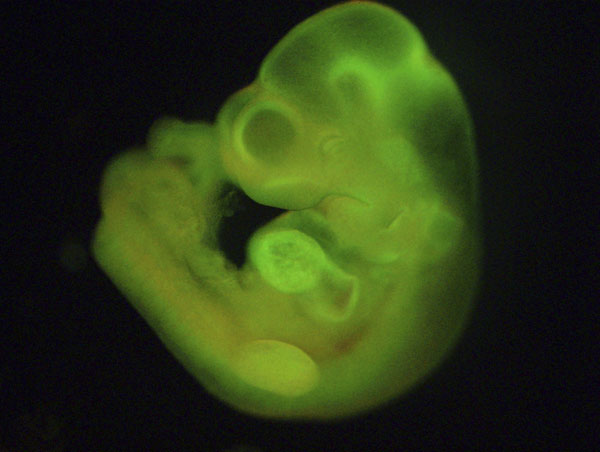|
 |
|
A mouse embryo formed with Stimulus-Triggered Acquisition of Pluripotency (STAP) cells is seen in this undated image released by RIKEN Center for Developmental Biology on January 28, 2014.[Photo/Agencies] |
Deputy Chief Cabinet Secretary Katsunobu Kato said that he hoped the discovery would help push the field of regenerative medicine forward in the future.
"We hope the finding will help realize revolutionary regenerative medical techniques in the future," Kato told a news conference, adding that the government now plans to secure further funding for research and development in the field.
Kato hailed the efforts of the research team's leader from The Riken Center for Developmental Biology and Harvard University, Dr. Haruko Obokata, 30, stating that the young women had shown great talent and initiative in discovering the new phenomenon, known as stimulus-triggered acquisition of pluripotency (STAP).
Obokata and her team, according to two papers published on the topic, tested a number of different conditions to ascertain if any could reset the polarity state of mouse lymphocytes taken from the spleens of young mice.
Obokata, in one of her team's studies, concluded that by moderately lowering the pH level of the cell culture for less than 30-minutes, the pluripotency gene became further expressed in a portion of the cells.
This, according to the study, showed that the cells had been transformed into an embryonic-like state
"They were stripped of their differentiation memory and reverted to a state of pluripotency that in many ways resembled what is seen in embryonic stem cells," Obokata was quoted as saying.
"It was really surprising to see that such a remarkable transformation could be triggered simply by stimuli from outside of the cell," the doctor said.
Obokata's findings are being heralded as such a success because the new process means that no potentially dangerous genetic manipulation is needed.
The implications for medical science are huge, and reach further than the method developed by Nobel Prize-winning Japanese scientist Shinya Yamanaka, although some experts say that the real- world application of Obokata's method may be years off, and more trials need to be conducted on human cells, and, more specifically, mature cells from adult patients.
However, scientists are already eyeing the potential benefits of the STAP method for cancer research, next-generation pharmacology and regenerative medicine..